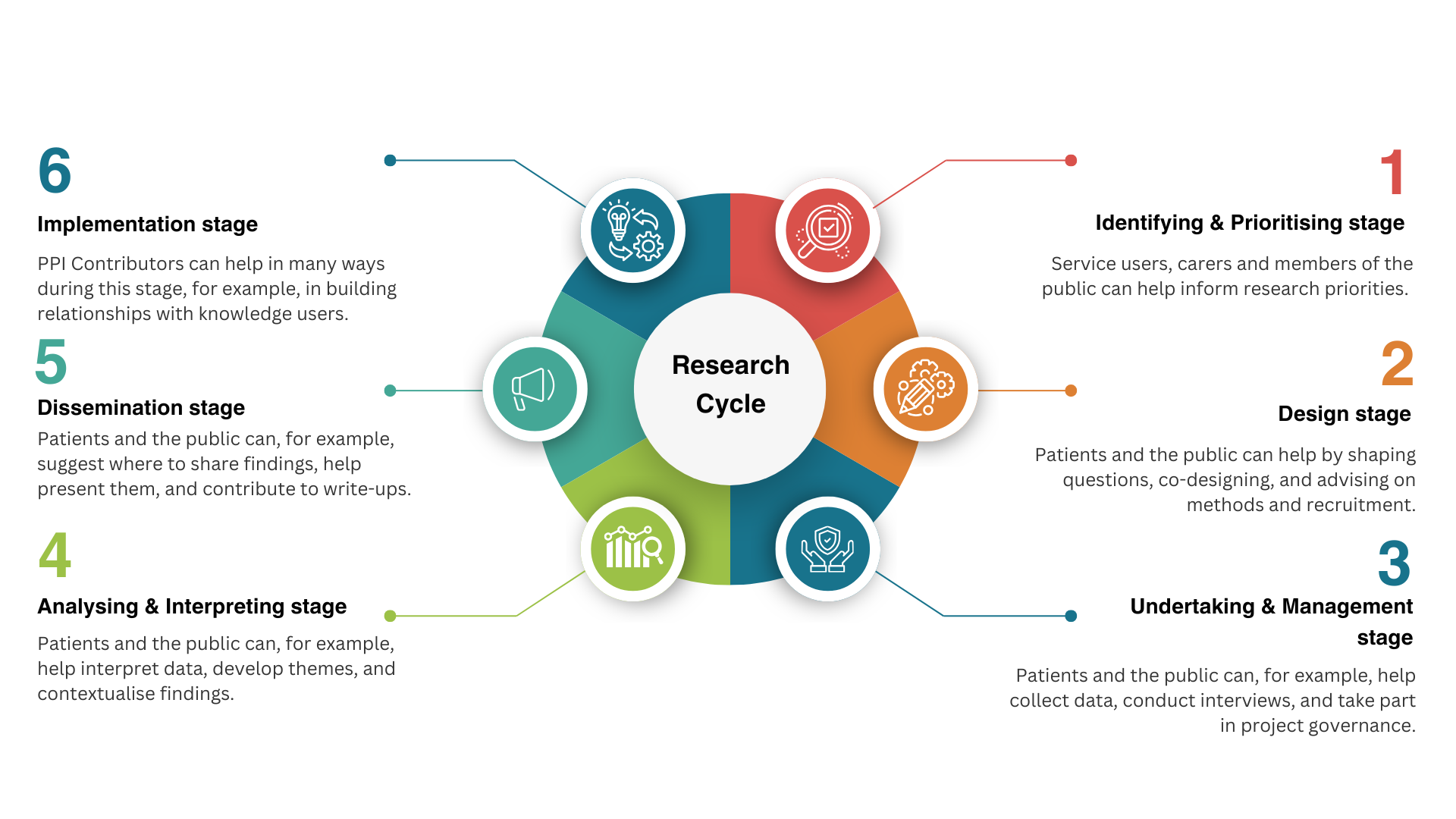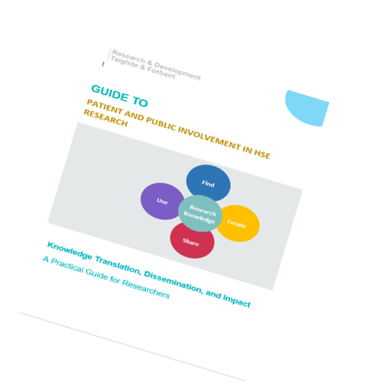On this page
Definition of Public and Patient Involvement (PPI) in Research
Public and Patient Involvement (PPI) refers to the active collaboration between researchers and individuals with lived experiences, patients, carers, service users, and members of the public, throughout the research process. This partnership encompasses the planning, design, execution, and dissemination phases of research, ensuring that studies are conducted with or by the public, rather than to, about, or for them.
This approach acknowledges the unique insights and expertise that individuals bring from their personal experiences, which can enhance the relevance, quality, and impact of research. PPI is distinct from:
- Participation: where individuals are subjects in a study.
- Engagement: where information about research is shared with the public.
By integrating PPI, research becomes more attuned to the needs and priorities of those it aims to serve, fostering outcomes that are more applicable and beneficial to the wider community.
Principles of Public and Patient Involvement (PPI)
The PPI Ignite Network has developed a set of values and principles to support meaningful public and patient involvement (PPI) in research. Researchers are encouraged to consider how to uphold these when planning or engaging in PPI activities:
- Transparency
Clear, open, mutual communication between the research team and PPI partners about research decisions and progress, with a shared understanding of aims, roles, processes, and terms of involvement. - Respect
Recognition of the roles, knowledge, insights, experiences, strengths, limitations, and contributions of all involved across the research lifecycle. - Empowerment & Power Sharing
Inclusion as early as possible in funding decisions, strategy, and research design, using a wide range of involvement strategies to support co-design and co-production. - Trust
Building reciprocal trust through consistent relationship-based engagement, ensuring all voices are heard and confidentiality is negotiated and respected. - Collaboration & Partnership
Inclusion of PPI partners throughout the research lifecycle, with commitments and expectations agreed as early as possible, and all contributions valued equally. - Equity & Inclusion
Active identification and removal of barriers to involvement, creating entry points across the research lifecycle, and valuing the diversity of opinions, experiences, abilities, backgrounds, and expertise. - Flexibility
Recognition of the time and other commitments involved in PPI, with appropriate adjustments and co-designed responses based on contributors’ experiences and views.
These principles aim to support a consistent and shared approach to PPI across the research community.
Applications of PPI Across the Research Cycle

Training and Support Resources

Guide no 8: Patient and Public Involvement in HSE Research PDF/728 KB
The guide explains what patient and public involvement (PPI) is, what it involves, and gives suggestions about how to involve contributors in all parts of the research cycle and knowledge translation. It also explains the importance of recognising and valuing PPI and gives examples of good practice.

Guide no 8a: Cost and Budgeting for Patient and Public involvement in HSE Research PDF/728 KB
The guide gives advice on how to cost and budget for patient and public involvement (PPI) in research projects and applications for research funding. It explains what costs should be included when budgeting for PPI activity in a project and provides advice on good practice.
Extra Learning and Development Opportunities
The Digital Badge in Patient and Public Involvement (PPI) in Research is a validated micro-credential awarded to learners in an online format. The course is open to researchers at all career stages from within and outside UCC. It covers topics such as:
- Introduction to PPI
- Introduction to participatory research
- Meaningful involvement
- Practical examples of involvement
- Involving children and young people in research
- Reporting and evaluating PPI
Participants can take the course in their own time, at their own pace. The badge highlights the collaborative nature of the PPI Ignite Network as it includes content from powerful PPI contributors and experienced academics from the University of Limerick, the University of Galway, Royal College of Surgeons Ireland, Trinity College Dublin, University College Dublin and Dublin City University- all fellow members of the National PPI Ignite Network. To enrol in the Digital Badge course, click here: https://ucc.instructure.com/courses/56578. If you require further information, please contact ppi@ucc.ie.
PPI Ignite Network Ireland
PPI Ignite Network Ireland: The PPI Ignite Network is funded by the Health Research Board and Irish Research Council and aims to promote excellence and innovation in PPI. It is a partnership between 7 lead universities and national partners including IPPOSI, Research Charities, and HSE. It is a useful source of information for researchers and public and patient contributors to research.
